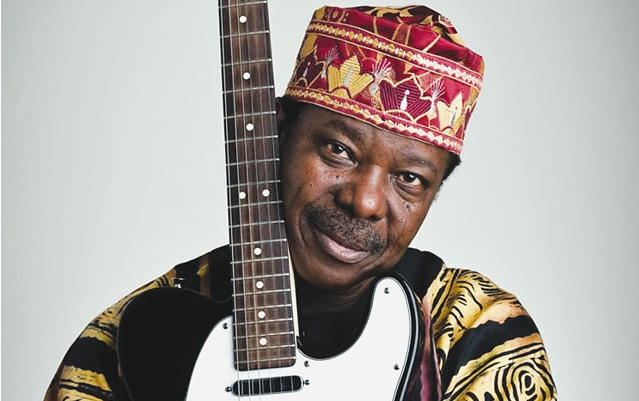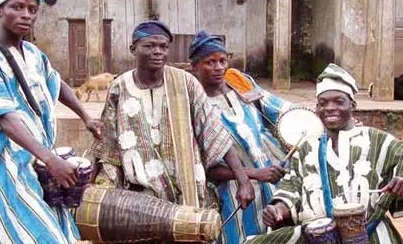
support@yorubalibrary.com
+2348073529208, 07038599574

King Sunny Adé, otherwise known as Sunday Adeniyi Adegeye, is a renowned Nigerian musician and one of the most influential artists in the history of Juju music. His career spans over five decades, and his contributions to music have earned him the title "King of Juju Music."
Early Life and Background
King Sunny Adé was born on September 22, 1946, in Ondo, Nigeria. He hails from a royal family, which influenced his stage name. From a young age, Sunny Adé showed a passion for music, and he began his musical journey by joining Moses Olaiya's Federal Rhythm Dandies, a highlife band.
Rise to Fame
In the 1960s, King Sunny Adé formed his own band, the Green Spots, which later evolved into the African Beats. His unique style, blending traditional Yoruba music with Western instruments and rhythms, set him apart from other musicians. By the 1970s, he had become a household name in Nigeria.
Musical Style and Innovations
King Sunny Adé is known for his innovative approach to Juju music. He introduced the pedal steel guitar, synthesizers, and other electronic instruments, creating a distinctive sound. His music often features intricate guitar work, rich vocal harmonies, and complex rhythms. Songs like "Ja Funmi" and "Synchro System" showcase his musical genius.
International Recognition
In the 1980s, King Sunny Adé gained international fame. He signed with Island Records, the same label that signed Bob Marley. His albums, "Juju Music" and "Synchro System," received critical acclaim and introduced Juju music to a global audience. He toured extensively, performing at prestigious venues and festivals worldwide.
Contributions to Nigerian Music
King Sunny Adé's impact on Nigerian music is profound. He popularized Juju music and paved the way for future generations of musicians. His music promotes Yoruba culture, tradition, and values. He has received numerous awards and honors for his contributions to music and culture.
Legacy and Influence
King Sunny Adé's influence extends beyond music. He has inspired countless artists in Nigeria and around the world. His dedication to preserving and promoting Yoruba culture is evident in his work. Even today, he continues to perform and remains a beloved figure in the music industry.
Conclusion
King Sunny Adé is more than just a musician; he is a cultural icon. His contributions to Juju music and Nigerian culture are immeasurable. His legacy continues to inspire and entertain, solidifying his place as the King of Juju Music.

The unique styles of Yoruba Bata and Dundun dances…

The emergence of new age social media and impact i…